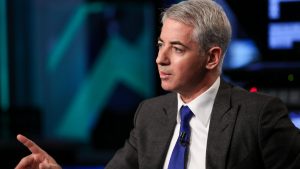Share this page:
Millennials have been the driving force behind investments during the pandemic. In fact, 23% invested more during Covid-19 – and 32% of those increased their trading activity directly or through an online platform.
But it is what they are investing in that is of particular interest. One-third of millennials take environmental, social and governance (ESG) factors into account. So with a large proportion of investors focused on ESG, are we seeing a shift in investment trends?
What investments are millennials interested in?
Research by MoneyTransfers.com shows that millennials like their investments in a variety of places. Many of these are the traditional avenues of property and mutual funds.
But a new trend towards sustainable investing is also emerging. Unless you live under a rock, worried that the climate crisis is already out of control, you will have seen an increase in interest in ‘green investing’.
This is where environmental, social and governance factors play a role: creating an investment portfolio that will benefit society or the environment. Think less funding fossil fuels and big mining operations and more decarbonisation and renewable energy.
And it’s proved to be a hot ticket for millennials. One-third of investors born between 1981 and 1996 take ESG factors into account. This is in contrast to 19% of Gen Z, 16% of Gen X and just 2% of boomers.
Why ESG?
ESG and sustainable investments have boomed in recent years. It’s hard to ignore climate change when it is dominating the front pages.
While some people find comfort in buying electric cars or going vegan, others have decided to look at what impact their money has. Millennials want to make sure their money is invested in sectors that are looking for a way out of the crisis.
Having said that, lots of investment and savings providers claim to be climate-friendly. So it can be hard to know for sure where your money will make a difference.
If you want to invest in ESG, then the first step is to look for a ‘climate-friendly’ investment fund. This involves choosing a fund that actively picks stocks that promote things like decarbonisation or that work for change within polluting industries.
Also, don’t forget about your pension! It could be that your pension funds are being invested in sectors that are not environmentally friendly. Thankfully, you have the option to make a change and pick new pension investments that have more of an ESG agenda.
Take home
ESG investments are relatively new, but that doesn’t mean they are going anywhere. The obvious demand from the younger generations will continue to drive this boom in more socially conscious investment.
However, as an investor yourself, it is worth doing your own research and making sure that your money is invested where you want it to be. If ESG factors are high on your priority list, then take a look at your portfolio and pensions to see if they reflect your interests.
And remember, investing carries risk. Just because something is performing well now, doesn’t guarantee returns in the future.
Was this article helpful?
YesNo
About the author
Kate is a freelance writer who specialises in answering personal finance questions in the clearest way possible.
Share this page:
Some offers on MyWalletHero are from our partners — it’s how we make money and keep this site going. But does that impact our ratings? Nope. Our commitment is to you. If a product isn’t any good, our rating will reflect that, or we won’t list it at all. Also, while we aim to feature the best products available, we do not review every product on the market. Learn more here. The statements above are The Motley Fool’s alone and have not been provided or endorsed by bank advertisers. John Mackey, CEO of Whole Foods Market, an Amazon subsidiary, is a member of The Motley Fool’s board of directors. The Motley Fool UK has recommended Barclays, Hargreaves Lansdown, HSBC Holdings, Lloyds Banking Group, Mastercard, and Tesco.
This post was originally published on Motley Fool







